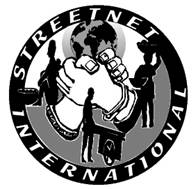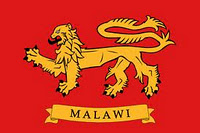 Kathmandu 22 April 2011
Kathmandu 22 April 2011
PRESS STATEMENT
This week in Kathmandu, StreetNet International, an international federation of street vendors, informal market vendors and hawkers, has held its annual two-day International Council meeting followed by a two-day international theme meeting on Street Vendors and Informal Traders living with disability. Participants attended from Argentina, Bangladesh, Benin, Democratic Republic of Congo, Ghana, Guinee, Honduras, India, Kenya, Korea, Malawi, Mexico, Mocambique, Nepal, Nicaragua, Niger, Peru, Senegal, South Africa, Spain, Tanzania, Togo, Uganda, United States of America, and Zimbabwe. These meetings were hosted by StreetNet’s local affiliate NEST (Nepal Union of Street Vendors) and GEFONT (the General Federation of Nepalese Trade Unions) to which NEST is also affiliated.
The international theme meeting was aimed at empowering StreetNet International to develop a mainstreamed approach on the situation of street vendors living with disability – taking cognizance of the fact that people with disabilities make up a higher proportion of street vendors and informal traders than formal work sectors, where they are often completely excluded from the labour market. After two days’ work, the meeting developed the first basic elements of a StreetNet International policy on this question. StreetNet affiliates which have made advances in the organisation of street vendors and informal traders with disability shared their experiences, e.g. almost 20% of the members of the Kenya National Alliance of Street Vendors & Informal Traders (KENASVIT) are people with disabilities after the organisation’s vigorous defence of their rights to trade in various Kenyan cities on an equal basis with able-bodied street vendors, but with special facilities where relevant. KENASVIT’s struggles have further contributed to the development of very progressive laws on people with disabilities, with a strong focus on the needs of those who are street vendors and informal traders. The Zimbabwe Chamber of Informal Economy Associations (ZCIEA) involved people with disabilities from grassroots to national leadership, and now have housing cooperatives for people with disabilities. The Malawi Union for the Informal Sector (MUFIS) has succeeded in having members with disabilities with equal involvement in the leadership and activities of the organisation. As a result, they now they find it easier to organise people with disabilities, and their needs are better represented.
It was agreed that all StreetNet’s 41 affiliates in 35 countries mainly in Africa, Asia and Latin America, will all now be encouraged to focus more attention on the organisation of street vendors and informal traders with disabilities – with a particular focus on the women – as part of the most marginalised, discriminated against and stigmatised in this sector of the informal economy which itself is socially marginalised.
In addition, the following resolutions which had been referred to the International Council by the Third International Congress in Cotonou, Benin in August 2010, were passed this week:
1. Climate Change, its effects on workers in the informal economy, and the contribution of the informal waste recycling sector to amelioration of climate change;
2. Inclusive cities and inclusion of informal economy workers in urban policy development and participatory budgeting;
3. Globalisation and its impact on workers in the informal economy;
4. World Trade and its effects for workers in the informal economy;
5. Class and employment relations in informal economy workplaces;
6. Creation of an International Street Vendors’ Day;
7. Universal health insurance and access to quality health services.
As stated by the General Secretary of GEFONT during the opening of the international theme meeting, these events were part of working class solidarity throughout the world, and the common goal of international trade union networks is to develop an alternative world with dignity and creativity of workers, and better life for all. Previously the trade union movement was led by the European continent, but now workers from Africa, Asia & Latin America have to take a lead – as there is no possibility of better world without organising workers in informal economy.
The partnership between GEFONT and StreetNet International is very much valued by StreetNet, as well as the active participation of StreetNet’s Nepalese affiliate NEST in international activities including the shaping of new inclusive urban policies which are more conducive to decent work and better livelihoods for street vendors and informal traders.
Issued by Pat Horn
International Coordinator
____________________________________________________
International Council members: Oscar Silva (Argentina) (President) Ms Anastasie Maswamba (RD Congo) (Vice President) Ms Shikha Joshi (India) (Secretary) Ms Beauty Mugijima (Zimbabwe) (Treasurer) Ms Clarisse Gnahoui (Benin)
Ms Juliana Brown-Afari (Ghana) Ms Madeleine Tounkara (Guinee) Ms Dorothy Kenneth (Kenya)
Ms Sandra Florez (Nicaragua) MsSouley Zeinabou (Niger) Ms Fatoumata Bintou (Senegal) Mamadou Fall (Senegal)
Narayan Neupane (Nepal) Fundile Jalile (South Africa)




No comments! Be the first commenter?